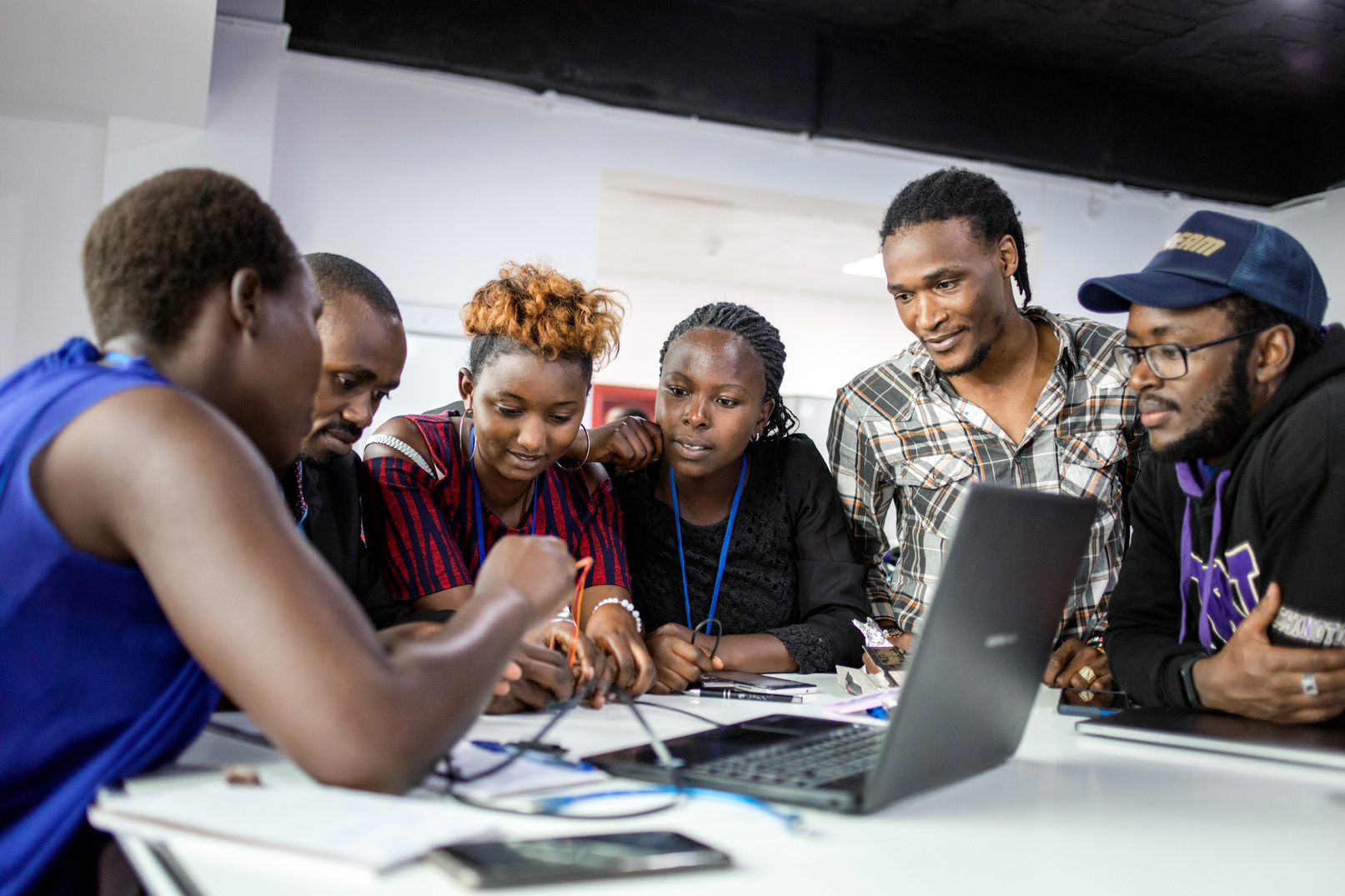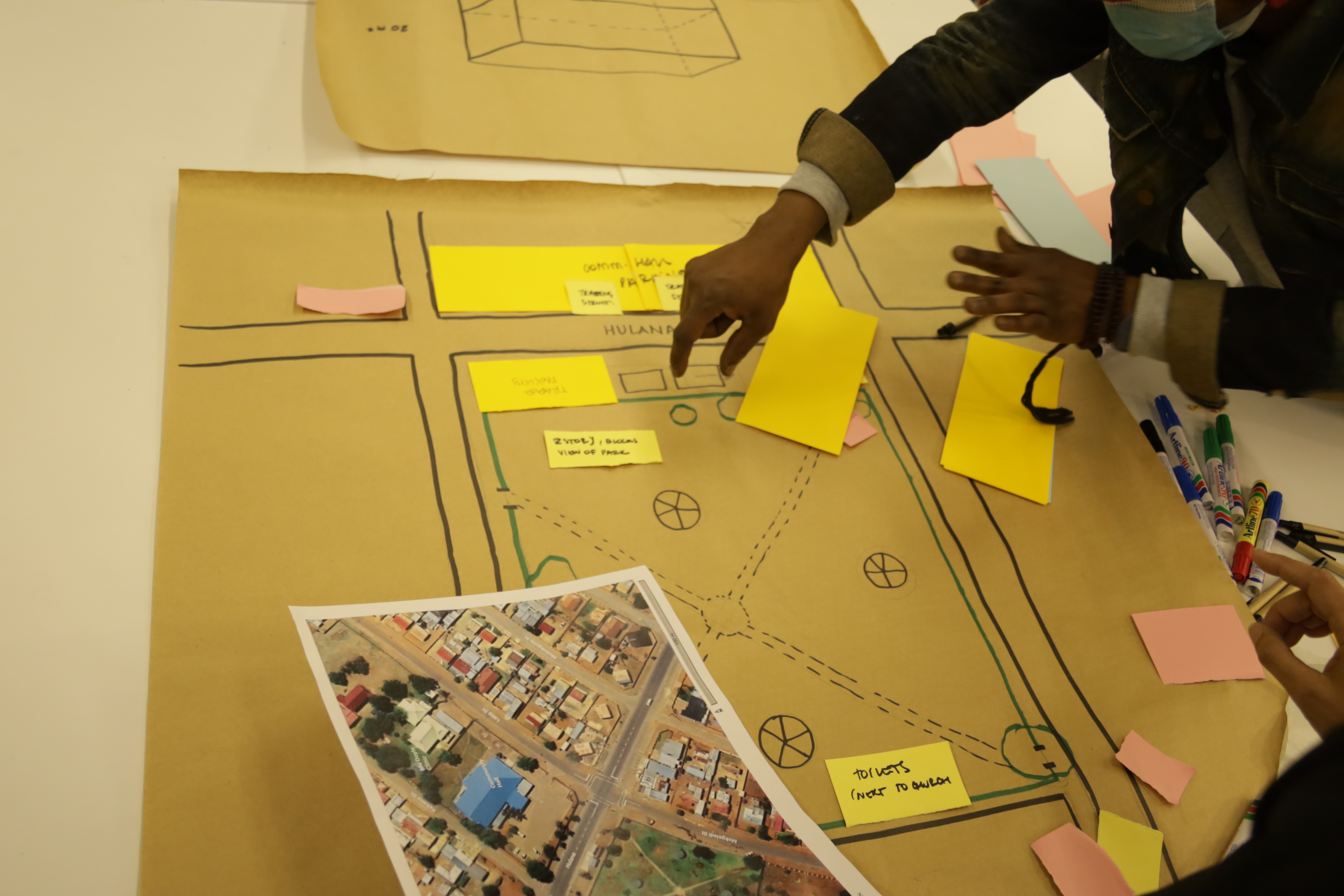Urban development Enabling environments for liveable cities
Training for computer-assisted participative urban planning at the Digital Transformation Center in Kigali, Rwanda
Governance
The first of three pillars of sustainable urban development is good, coordinated cooperation between the responsible levels of government and administrations. Guided by the principles of good governance, Germany fosters exchange between these institutions and dialogue with civil society, interest groups and the private sector.
For example, it provides support for administrative reforms, decentralisation processes and the formulation of national urban development strategies. The aim is to ensure that local needs and requirements are taken into proper consideration in national policies.
Many cities and municipalities lack sufficient qualified personnel and effective administrative structures. Through ongoing support and advisory services, the BMZ assists its partners in their efforts to develop training programmes, build networks and create information and training material.
Integrated urban planning
Participatory design of a public park
The second pillar of an effective enabling environment is integrated urban planning. For the BMZ, this means cooperation between levels of government, different stakeholders and representatives from various areas and geographical regions. In order to make effective use of limited financial and human resources and take advantage of synergies, factors such as good cooperation between cities and the surrounding areas are key.
Cities around the world are facing similar challenges, in particular in terms of climate change and social inequality. This makes cooperation between cities as part of national and international networks extremely important. On the one hand, cooperation enables knowledge and experience to be shared. At the same time, cities and municipalities that form networks can speak with a united voice in order to shape national politics and represent their interests more effectively in international processes.
When planning and implementing urban development projects, it is important to involve all sections of urban society. In line with the guiding principle of the 2030 Agenda, “leave no one behind”, German development cooperation focuses on strengthening disadvantaged groups, in particular women, children and young people, persons with disabilities, ethnic minorities and migrants.
Strengthening local authority finances
Rapid urbanisation, the necessary structural transformation and adaptation to climate change all require significant financial resources. Most cities are not in a position to finance all of these investments on their own and are thus dependent on national funding allocations and external support. There is currently an annual global shortfall of around one billion US dollars in this area, affecting countries in sub-Saharan Africa and South Asia in particular.
Strengthening local authority finances is therefore the third pillar in creating the necessary enabling environment for sustainable urban development.
In accordance with the principles of good financial governance, the BMZ supports fiscal decentralisation policies, i.e. policies by which municipalities receive an adequate and appropriate share of public revenue. This ensures that municipalities are allocated appropriate funds from the central government in a reliable and transparent way, enabling them to budget and increase their own revenue more effectively.
Germany also assists cities in establishing transparent and accountable financial management systems. This helps to foster trust in their administrations and improve their access to private investment, capital markets, local and regional development banks and international development programmes (see also “Urban climate financing” and “International partnerships”).
As at: 15/04/2024

